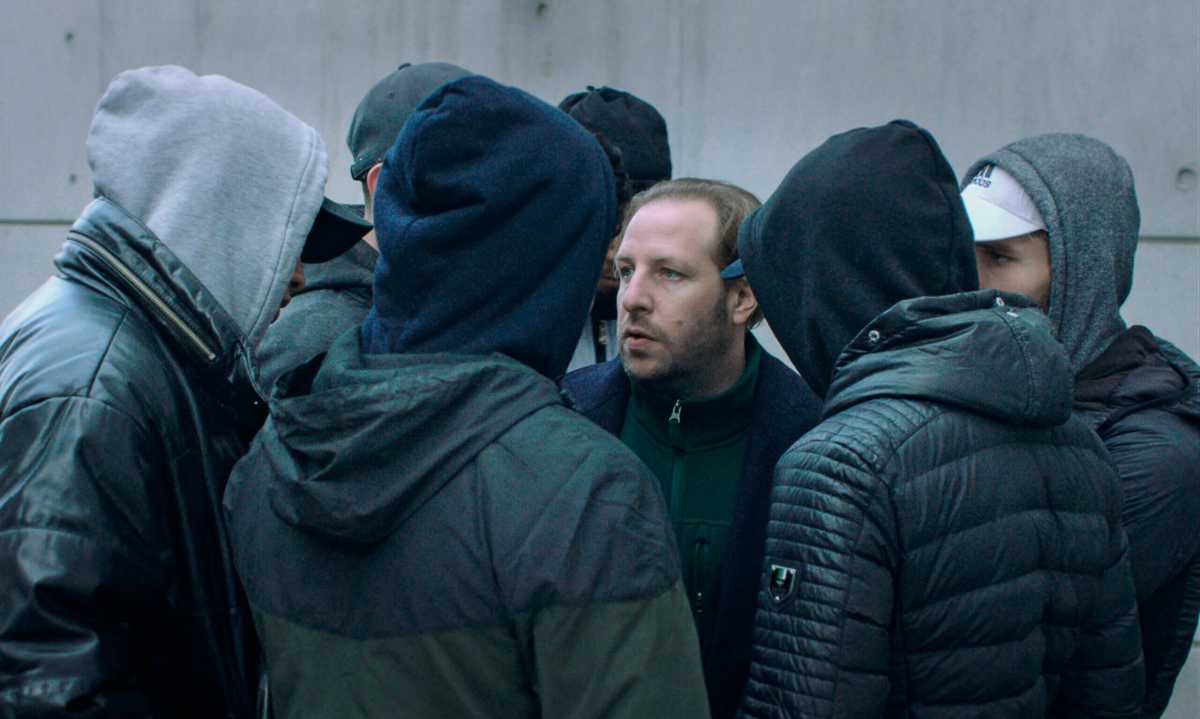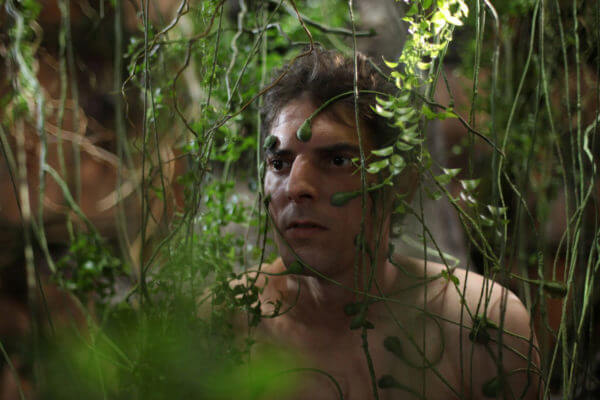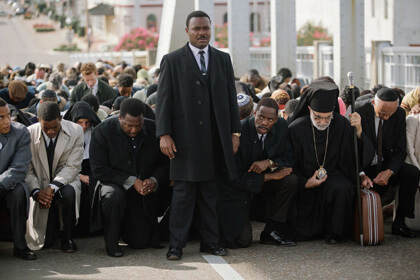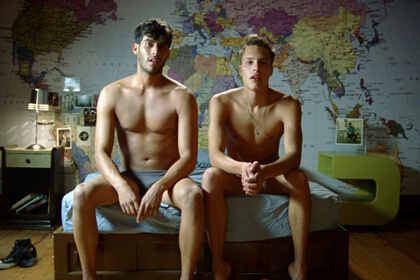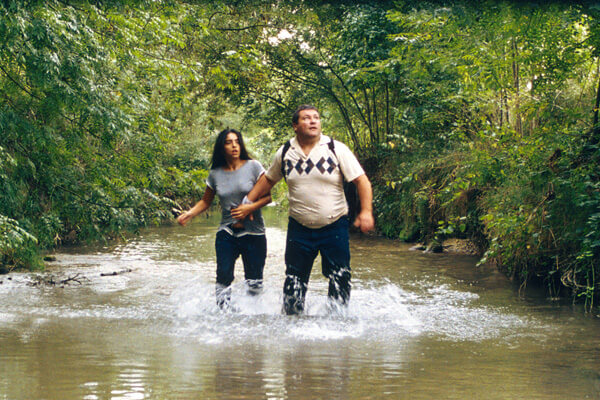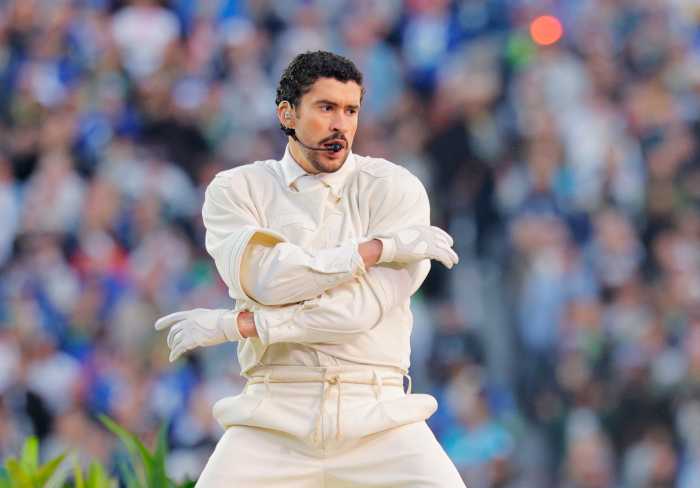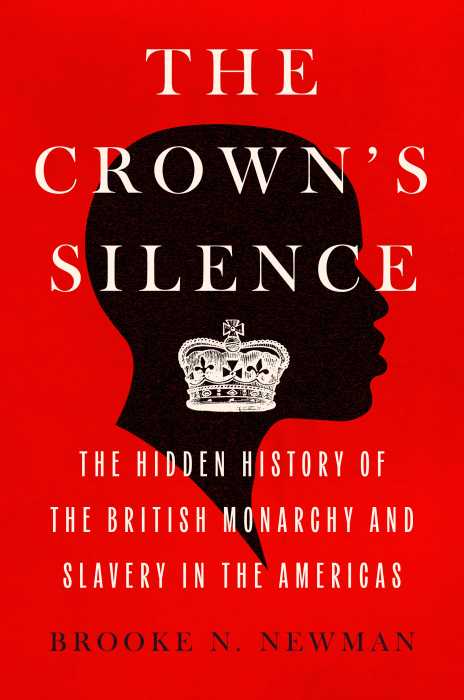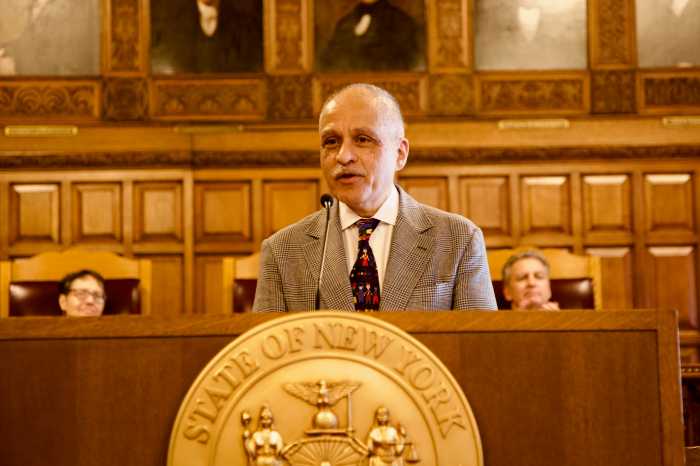In the absurdist comedy, “Nobody’s Hero,” Médéric (Jean-Charles Clichet) comes on to Isadora (Noémie Lvovsky), a sex worker, and asks for a freebie. She eventually agrees and has such an orgasm, Isadora refuses to charge him. But while in flagrante delicto, the couple is interrupted by two things — a terrorist attack, and Isadora’s extremely jealous and possessive husband Gerard (Renaud Rutten).
As Médéric returns home that night, he encounters Selim (Ilies Kadri), a homeless Arab youth who asks for money for food. Médéric suspects that Selim has a role in the terrorist attack, and while he lets Selim into his apartment, he also calls the police, who exonerate Selim. Turns out his neighbors have also been helping Selim, but Selim is in love with Médéric, and does not want to leave him. However, Médéric is interested in Isadora, and contrives ways of getting her away from Gerard.
“Nobody’s Hero” is a critique of French society, from its sexual mores to its social issues and politics — e.g., racism and xenophobia. Out gay director/cowriter Alain Guiraudie (“Stranger by the Lake”) has created a highly amusing film where the characters who want to get laid keep getting interrupted, and the characters who are afraid keep anticipating the worst.
The filmmaker chatted, with the assistance of interpreter Ellen Sowchek, with Gay City News about making “Nobody’s Hero.”
I like the title, because Médévic is mostly selfish in his desires and his actions are self-serving, but they appear altruistic. Can you talk about that idea and his character?
I absolutely wanted to portray this character as someone who is just the average French person of today, someone who embodies courage on one hand and cowardice on the other. He is generous on one hand, and not generous on the other. He has many, many contradictions. I see this in a lot of people. This is what I was looking for in the average French person, but truthfully, I don’t know if that particular character really exists in life. I was trying to achieve the archetype of the average French person but at the same time make someone who is very unique. It was very hard to find an actor to play the role because it was complicated.
He was sweet and endearing, but also had a kind of cynicism about him.
[Laughs.] That is his charm; he embodies stubbornness and sweetness.
What decisions did you make regarding the characters of Isadora, a sex worker with a heart of gold, and Selim, an Arab youth who is mistaken for a terrorist? These characters lean into stereotypes, but you subvert expectations, which is what makes them funny and endearing.
I wanted to play with these archetypes and cliches and turn them upside down to keep the viewer on their toes. They are going to see something unexpected.
Your film is about obsession and control and how various characters, Médéric especially but also Isadora and Selim, try to maintain control over what they want but ironically keep getting frustrated in the process. Can you talk about that theme? It’s a frustration comedy of sorts but it also plays with political issues.
The idea of the comedy in the film was very important for me. I thought of traditional French boulevard comedies. Also, films I liked, like “Rules of the Game” and Almodóvar’s movies, play on the interruptions and the farcical elements that are introduced. These films do what I wanted to do, which is see how far I could take a funny situation. Médéric is prevented almost every time he tried to make love with Isadora. I was interested in that partly for the comedy, but also to show Médéric loving Isadora not for Isadora, but creating that desire, which perhaps he had not had before. It was creating the tension, a feeling he wanted something. He thinks he loves her and is taking that idea as far as it can go.
I like the sense of community and the mobilization of Médéric and his friends and neighbors to help Selim. Can you talk about your critique of French society? The film is about people following or breaking the rules and asserting or questioning authority.
My idea in the film is that you see so much in the media, especially the politics of right that focuses so much on our differences and emphasizes them. I wanted to turn that around and talk about the way things bring us together, not separate us. I used the idea of the building and levels as a metaphor for the different levels you would see in France, Europe, and throughout the world. What I also wanted to show was how the arrival of the newcomer, Selim, brings the neighbors out and they start to talk to each other and discuss things, which they had not done before. It was important to show the need to discuss things and find solutions. It is similar to a political discussion. If you set politicians in a room and have them discuss things, hopefully they can come up with a solution.
Sexuality is quite fluid in the film as characters who are said to be gay sleep with Isadora. Selim and Médéric share moments of homoeroticism. Can you talk about developing that aspect of the film?
I really played a lot with this idea. I wanted to play off the idea of what viewers are expecting first of me, as a director, and what they expect of the characters. Médéric says he’s gay, but nothing in the film proves that he is—or isn’t—gay. They were behaving in a way that more quid quo pro rather than to be compartmentalized. For me, it was a fun way to play with the audience and catch them unawares, so they didn’t know what to expect.
Can you talk about presenting nudity and bodies? I was struck by the early sex scene of Médéric’s luminous nude body against the red bedspread when he is with Isadora. A later sequence has him carried naked by a group of people in his apartment. You also show several scenes of fighting where bodies are connected and injured. The idea of personal space and identity came to mind during these scenes for me.
I wasn’t looking to focus on the body or personal space, but what I tried to do in the scene with Isadora in the beginning, was to eroticize a body and type that is not seen as erotic, a woman past her prime, over 50 and not typically eroticized in fantasies. That was important to me. With Médéric and the dream scene with the Islamic fundamentalists, it is important that he is naked. When we dream, we are often naked, and it makes his character more fragile than he appears outside his dream. It makes the character more fragile, and also the actor playing the character. His fragility becomes part of it.
The film asks viewers to put themselves in Médéric’s position as to what you would do if confronted with the situation he faces. How would you respond in these encounters, and how do you want audiences to react, other than to laugh?
I do not know what people would do. When I was making the film, I wasn’t looking for a specific reaction, but I wanted viewers to put themselves in a position where they might question things. I made this film at a particularly dark time, and I wanted to make it a film about positivity. I wanted people to question, and even have myself question: What would I do in these situations? I’m a bit like Médéric myself. I have these contrasting moments of courage and cowardice, and what I would I do, and how I would respond. We all face this in our daily lives. The dialectic opposites we all have within us is something all viewers would have. So, you have to ask: At what moments did I laugh, and should I have laughed at that, or why?
“Nobody’s Hero” | Directed by Alain Guiraudie | Opening June 16 at the IFC Center | Distributed by Strand Releasing

